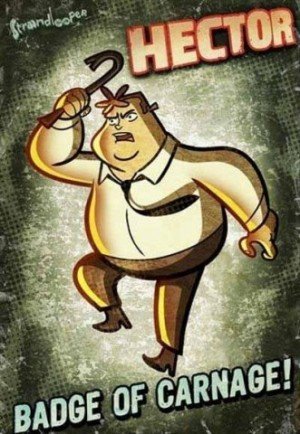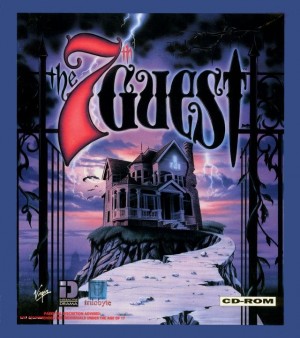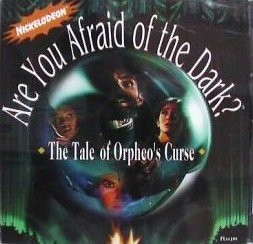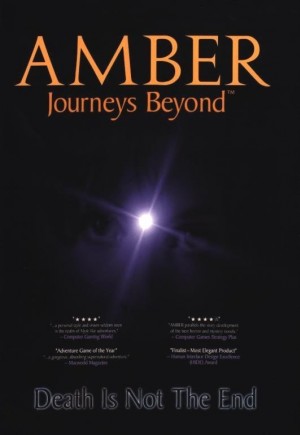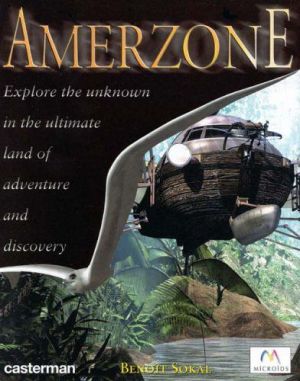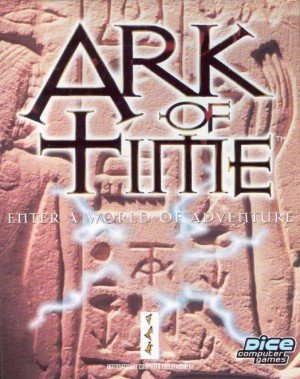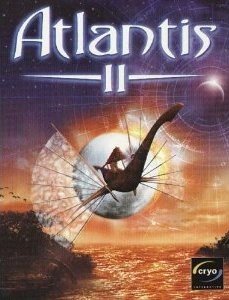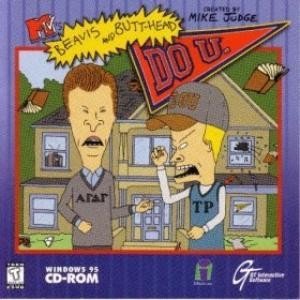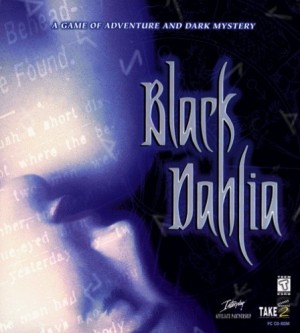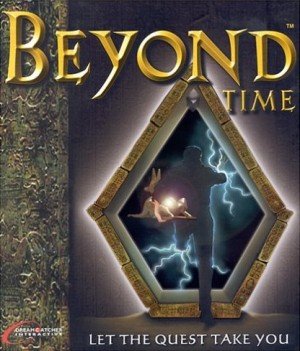Telltale Games - Dave Grossman and Dave Felton interview
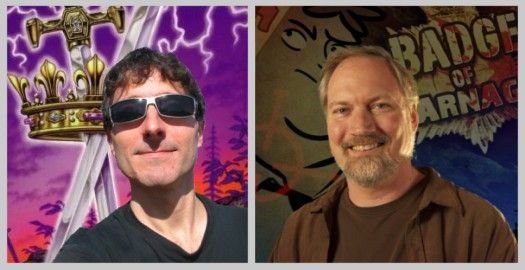
At a recent press event, Telltale announced a bold line-up of new episodic series based on various licenses. While they all look promising, and we’ll certainly be hearing plenty more about The Walking Dead and FABLES in the coming months, two very familiar names prominently stood out, demanding our immediate attention: a “reboot” of Sierra’s King’s Quest, and a continuation of Strandloopers’ Hector: Badge of Carnage. I sat down with design director Dave Grossman and producer Dave Felton to get a better idea of Telltale’s plans for the two franchises.
Adventure Gamers: Why did you decide to pursue Sierra franchises, when Telltale has such a prominent LucasArts background? (Or to put it more bluntly: Why should Sierra fans trust you with King’s Quest?)
Dave Grossman: Looking at our forums (or the ones at Adventure Gamers, for that matter), I get the sense that there are some fans who are rather leery about what we might do with a beloved license like King’s Quest. Which is all well and good, I would expect to encounter that kind of protective feeling from a die-hard fan of any franchise. To them I would say this: Telltale does have a significant Lucas background, but we also have a lot of lifelong Sierra fans in the studio. We are neither LucasArts nor Sierra, what we are is a studio that puts a huge amount of emphasis on staying true to the license we’re working with, no matter where it comes from. We approach our work as fans, we wanted to work with King’s Quest because there are a lot of people here who love it, and those are the people who are going to be building this game.
Also, we take input from our community seriously, so if there are particular things that you love about King’s Quest that you would like to see in the game, by all means post those thoughts to the Telltale forums. The designers read them, and a designer’s whole job is to make the audience happy.
AG: The Sierra licenses have been in limbo for a long time. Why is this partnership happening now—has it been in the works for a while, or did it come about recently? And did Tales of Monkey Island have anything to do with it?
DG: Discussions began quite some time ago, and the Sierra licenses are something we’ve been interested in pretty much from our earliest days as a studio, when we couldn’t even get our closest friends to return our calls. Whether Tales of Monkey Island got people to pick up the phone or not I couldn’t say—but it wouldn’t surprise me.
AG: Why did you choose King’s Quest? Which other Sierra licenses did you consider?
 |
Dave Grossman |
DG: There is internal enthusiasm for a number of the Sierra titles, but King’s Quest is something of a flagship. It seemed like the clear choice, simple as that. When you ask people here which titles they think we should do, they tend to start with, “Well, we’ll do King’s Quest of course, and then I think…” As for others, we have a couple of favorites among the staff, but we don’t have any additional statements to make on these right now.
AG: Will your KQ game follow up on old storylines and characters or should fans expect something completely new? Will we play as King Graham and/or do you have other playable characters in mind?
DG: To do something completely new would kind of defeat the point, wouldn’t it? There’s a lot of great history in KQ, and we want to make a game that fits into the established canon, and that fans will actually want to play. As for the details therein, I plead the fifth. No, wait, that makes it sound bad—I plead whatever amendment it is where game developers are cagy about the details of the game until it’s closer to the time when it comes out.
AG: Have you been following The Silver Lining and AGD Interactive’s King’s Quest remakes? Did these projects play any role in your decision to make new KQ games?
DG: Yes—in fact Cesar Bittar from Phoenix Online used to work here at Telltale, which is how I personally got my first look at The Silver Lining. The fact that the King’s Quest community is enthusiastic enough to put in the kind of time and sweat that it takes to make games like that gives me a lot of confidence that a new KQ title is a good idea. Of course, I also know that that audience will have high and specific expectations that we’ll have to live up to. But what else is new?
AG: What do you think makes a Sierra game different from a LucasArts game? Will the stylistic differences affect how you approach the King’s Quest license?
DG: The danger in a Sierra game always seemed more palpable and immediate than in one from LucasArts. Partly this was because LucasArts games took great pains to reassure you that you wouldn’t die and couldn’t do anything wrong, while Sierra games took a certain delight in all of the ways that you might die or otherwise fail that was part of the fun. Lucas games were largely exploratory, while Sierra titles had more of an element of challenge, including a more distinctly puzzley focus, situations with time constraints, and so on.
A good trick for us will be to preserve those elements of peril, challenge, and yes, death, but also hopefully do something to address the frustration that unfortunately tended to come along with them all too often and alienate some of the players (maybe if the game just saves and hits “restore” for you automatically that will be enough).
AG: Do you have any memories of playing Sierra games or of the LucasArts / Sierra rivalry that Adventure Gamers’ readers may find amusing?
DG: Hm. I doubt anyone would find reports of my incompetently fumbling my way through The Colonel’s Bequest very amusing. They might find it amusing that the game I played to prepare for my interview at LucasFilm was Leisure Suit Larry...
AG: Do you have any plans to reach out to former Sierra employees, as you did with Ron Gilbert for Tales of Monkey Island?
DG: You bet! We’ve already reached out to a number of people from the Sierra development world (and vice versa). We go straight to the source when we can.
AG: Now let’s talk about Hector: Badge of Carnage. When did Telltale first become aware of this game?
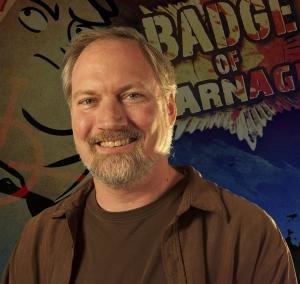 |
Dave Felton |
Dave Felton: When it first came out for the iPhone, it was well received as a classic point and click adventure with a mature edge. That got us interested to play it, which got us interested to work with them.
DG: We were developing for the iPhone ourselves, and we also have a keen interest in adventure games, so when Hector came out it was kind of a natural thing for people here to play.
AG: How did this partnership come about? Who approached who?
DF: Telltale approached Straandlooper.
DG: Straandlooper were looking for ways to continue their series and get it onto some other platforms, while we were interested in exploring some aspects of working on projects with external studios. Our goals fit together nicely, and we liked each other, so we’re making it happen.
AG: What makes Hector a good fit for Telltale?
DG: It’s an old-school adventure game with a unique style, strong narrative voice, and delightfully crude sense of humor. A good story experience, which is of course what we’re all about.
AG: What is Straandlooper’s role in the development of the upcoming games, and what is Telltale’s role?
DF: Straandlooper is in a development role with Telltale as the publisher for the upcoming game. However, Telltale also has programmers on the project in order to bring the game to more platforms.
DG: The Straandlooper guys are doing what they do best, designing and writing and drawing cool stuff. Telltale’s role on the design and writing front is editorial, and we’re providing more of the technical end and generally trying to support them and not get in the way of their creativity.
AG: Will the Telltale Tool be used for these games? Did you have to bring the first Hector episode into your engine in order to bring it to new platforms?
DF: Episode 1 is being remade in the Telltale Tool now. The process has not been too difficult. Straandlooper’s game engine does not have any functionality beyond what the Telltale Tool can do. It’s going to be very hard to tell the difference between the original version and the remake.
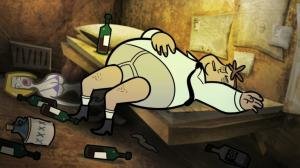 |
Hector (not a Telltale magician) |
DG: Fortunately, there are some magicians over there in the southern corner of our production floor, who are using some sort of perpendicular horizontal two-and-a-half-D craziness to make it work (I don’t know how many other studios use magicians to accomplish production miracles, but I recommend it).
AG: Is working with Straandlooper a special case, or will you be pursuing more partnerships like this in the future?
DG: This is our first date with the concept. It could be the beginning of something terrific, but we’ll see how we feel about it at the end of the evening.
AG: In addition to these two series, you recently announced games based on The Walking Dead and FABLES, plus Back to the Future is in progress and Jurassic Park and Puzzle Agent 2 are coming soon... that’s a lot to keep track of! How are you doing it?
DG: We announced a whole bunch of new properties for the studio all at once, but when it comes to actually developing them we stagger the series just like we do with the individual episodes. Although the studio is bigger than it used to be, this set of properties is going to keep us busy for quite a while. Some will see release this year and some won’t.
Consider our appetites whetted! Telltale has announced that the first episode of Hector: Badge of Carnage will come to PC, Mac, and iPad this spring, with two additional episodes following later this year. As for King’s Quest, Telltale says they'll have more details to share soon. The wait is on.




